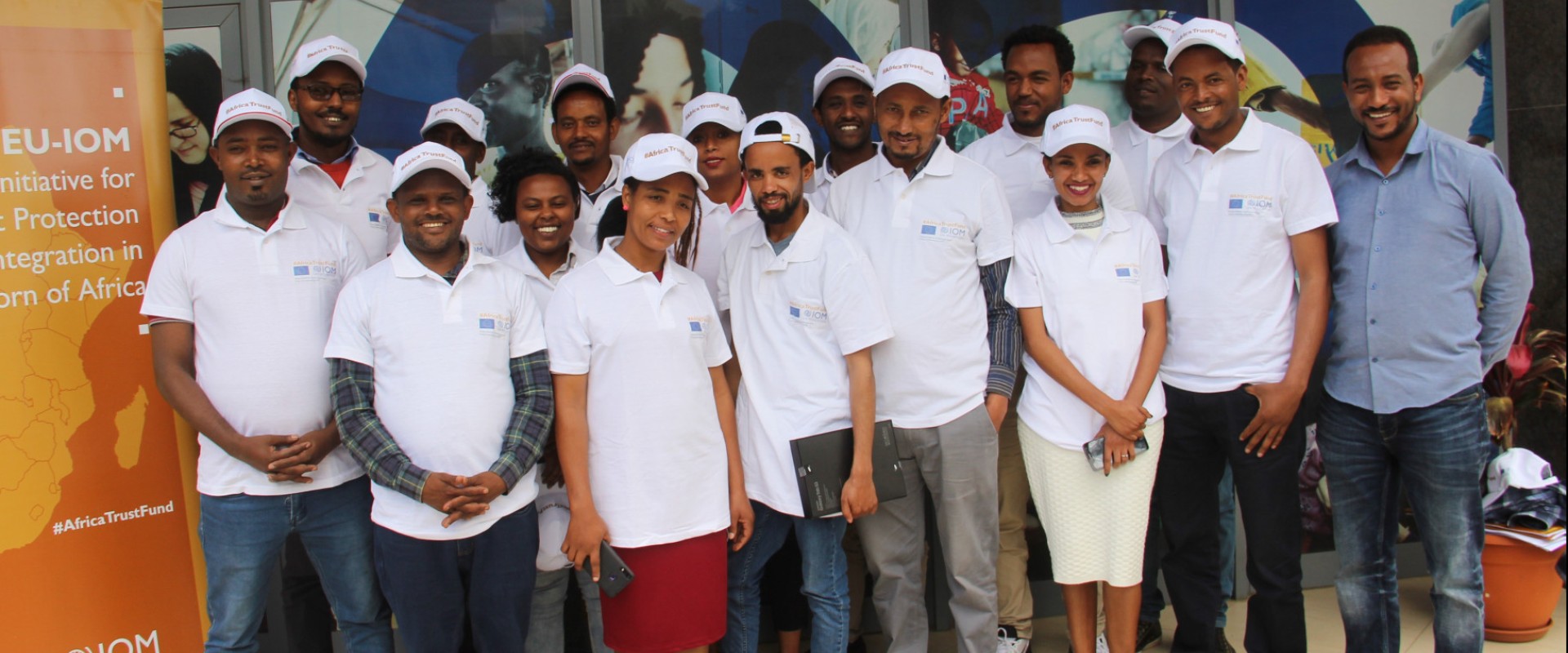Independent Research to Support IOM’s Assistance To Returnees In Ethiopia
Twelve universities in Ethiopia are working with the International Organization for Migration (IOM) to conduct independent research and analysis of the organisation’s reintegration support to migrant returnees in order to build capacity and better tailor assistance to their needs.
The collaboration is based on a forthcoming evaluation of the impact and sustainability of the assistance provided to returning migrants by IOM and 10 of its implementing partner organizations.
IOM will complement the cooperation of the universities by supporting them in building expertise, and boosting curriculum and research capacity in migration management, irregular migration, migrant protection as well as return and reintegration.
Ethiopia, which is Africa’s second most populous country with a population of over 100 million people, accounts for the largest migrant movements in the Horn of Africa. Many of the migrants aim to go to the Gulf countries, South Africa, and Europe. A significant percentage of those are unaccompanied children.
IOM’s agreement with the universities was signed under the EU-IOM Joint Initiative for Migrant Protection and Reintegration in the Horn of Africa (the EU-IOM Joint Initiative). Since March 2017 the programme has provided stranded migrants with assistance to return to their communities and rebuild their lives.
However, the success of reintegration assistance is often subject to speculation, hence the move to enlist the 12 universities, as impartial parties, to provide empirical analysis of the programme’s outputs.
The partnership aims to facilitate the reintegration assistance of migrant returnees in Ethiopia’s five regional states prone to irregular migration: Amhara, Oromia, Tigray, Somalia and the Southern Nations Nationalities and Peoples regional state.
Since 2017, IOM has facilitated the return of close to 6,000 migrants to Ethiopia and provided them with needs based economic, social and psychosocial reintegration assistance.
In preparation for the research, 137 academics have been trained on the integrated approach to sustainable reintegration, monitoring, as well as evaluation approaches and data collection methods.
As part of the agreement, universities with teaching hospitals, medical and psychology faculties will support returnees with their medical needs. Trained university staff will run psycho-social sessions for returnees, together with IOM and its implementing partners.
The universities will provide tuition free admission to qualified returnees in both undergraduate and post graduate programmes. The EU-IOM Joint Initiative will cover costs related to their thesis research.
Through the universities’ legal aid centres, returnees will have access to free legal counsel. IOM will also use the universities’ advocacy channels to raise awareness on the risks of irregular migration and on returnees’ reintegration needs.
The EU-IOM joint Initiative is a EUR 43 million programme funded by the EU Trust Fund for Africa and currently in its third year of implementation. It aims at facilitating safe, regular and responsible migration management through the development of rights-based and development-focused procedures and processes, focusing on migrant protection and sustainable reintegration. It is active in a total of 26 African countries.
